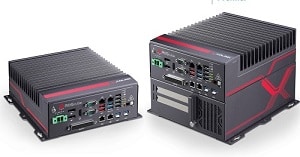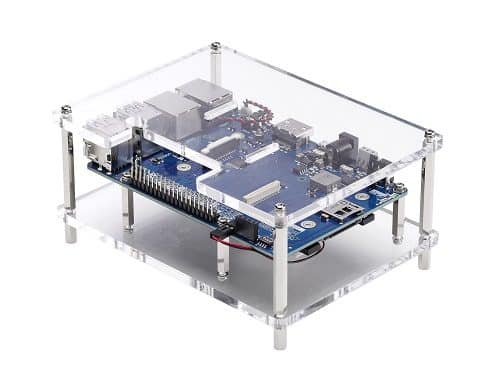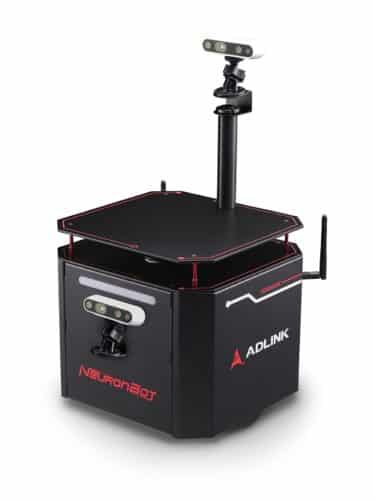- ADLINK Technology and Intel jointly offer flexible functionalities and performance for scaling up robotic applications
- Offer development kits for rapid development and accelerate AI computing
 ADLINK Technology, an edge computing solution provider, has launched the ROScube-I in collaboration with Intel, thus providing a real-time ROS 2 robot controller for advanced robotic applications.
ADLINK Technology, an edge computing solution provider, has launched the ROScube-I in collaboration with Intel, thus providing a real-time ROS 2 robot controller for advanced robotic applications.
The ADLINK ROScube-I Series is a ROS 2-enabled robotic controller based on Intel Xeon E, 9th Gen Intel Core i7/i3 and 8th Gen Intel Core i5 processors. The series features an I/O connectivity that supports a wide variety of sensors and actuators for meeting the needs of a wide range of robotic applications. The ROScube-I supports an extension box for convenient functionality and performance expansion with Intel VPU cards and the Intel Distribution of OpenVINO toolkit for computation of AI algorithms and inference.
Robotic systems based on the ROScube-I are supported by ADLINK’s Neuron SDK, a platform specifically designed for professional robotic applications such as autonomous mobile robots (AMR). The newly released ROS 2 Foxy Fitzroy (codename “foxy”) allows Neuron SDK customers to benefit from long-term support (LTS), as well as ADLINK’s quality-guaranteed services for ROScube.
Extensive development
The ROScube-I series features:
- High-performance x86-64 mainstream architecture for ROS 2 development
- Comprehensive I/O for connecting a wide range of devices
- Real-time I/O for environmental sensors (CAN, GPIO, COM)
- Real-time middleware for communication between software components and devices
- Hypervisor for safe mission-critical mission execution
- Ruggedized, secure connectivity with locking USB ports
- Optional RTOS such as VxWorks
Developers can easily use the ROScube-I Starter Kit or ROScube Pico Development Kit (powered by Intel Core, Celeron and Atom processors) to rapidly prototype algorithms and immediately deploy them to ADLINK’s NeuronBot ROS 2-based rapid robotic development kit for demonstration. This allows for fast improvement of AI models and acquisition of vision data to optimize operational decision-making. The NeuronBot also supports ADLINK’s Neuron SDK to leverage the powerful open-source ROS libraries and packages.
Related modules
The ROScube-I Starter Kit features:
- Embedded board with rich I/O interface
- MXM graphics module support for accelerated AI computing
- Compatibility with ROS/ROS 2
- OpenVINO™ support

The ROScube Pico Development Kit features:
- Compatibility with Raspberry Pi 40-pin GPIO
- Rich ROS open source applications
- Compact size based on the SMARC form factor

The NeuronBot features:
- Integrated vision, control, AI and motion modules
- Rapid robotic development design
- Support for powerful open source ROS libraries and packages
- OpenVINO™ support

“With the rise of Industrial 4.0, robotics will become increasingly intelligent powered by edge computing and AI on the path to the autonomous factory,“ said René Torres, Vice President of the Sales, Marketing and Communications Group and General Manager of Industrial Solution Sales at Intel Corporation. “We are pleased to partner with ADLINK to enable the ROScube, a market-leading innovative robot controller that is built to empower existing robotics solutions with high-performance edge AI analytics for dynamic manufacturing environments. Powered with technologies such as Intel Architecture, Intel Iris Graphics, Movidius and OpenVINO the ROScube will enable new levels of performance and collaboration between multiple AMRs with real-time communication”
“ADLINK is working closely with Intel to apply artificial intelligence to edge computing and our new ROScube-I releases the potential for robotic companies to develop and deploy AI-based applications faster and easier than ever, so our industrial and commercial customers can optimize operational efficiency and expand business value,” said Dr Ryan Chen, Director of the Advanced Robotic Platform Group at ADLINK. “We have also designed the ROScube-I Starter Kit and ROScube Pico Development Kit series as integrated hardware and software solutions which provide users with an ideal starting point to find AI value by enabling easy edge deployment of their models on our NeuronBot. This approach can then be scaled for industrial requirements using the same software platform but deployed on more powerful hardware as needed. This gives our customers the ultimate in future-proof flexibility by allowing them to immediately begin development with our comprehensive robotic solutions and then make their hardware solution choice at deployment time.”






